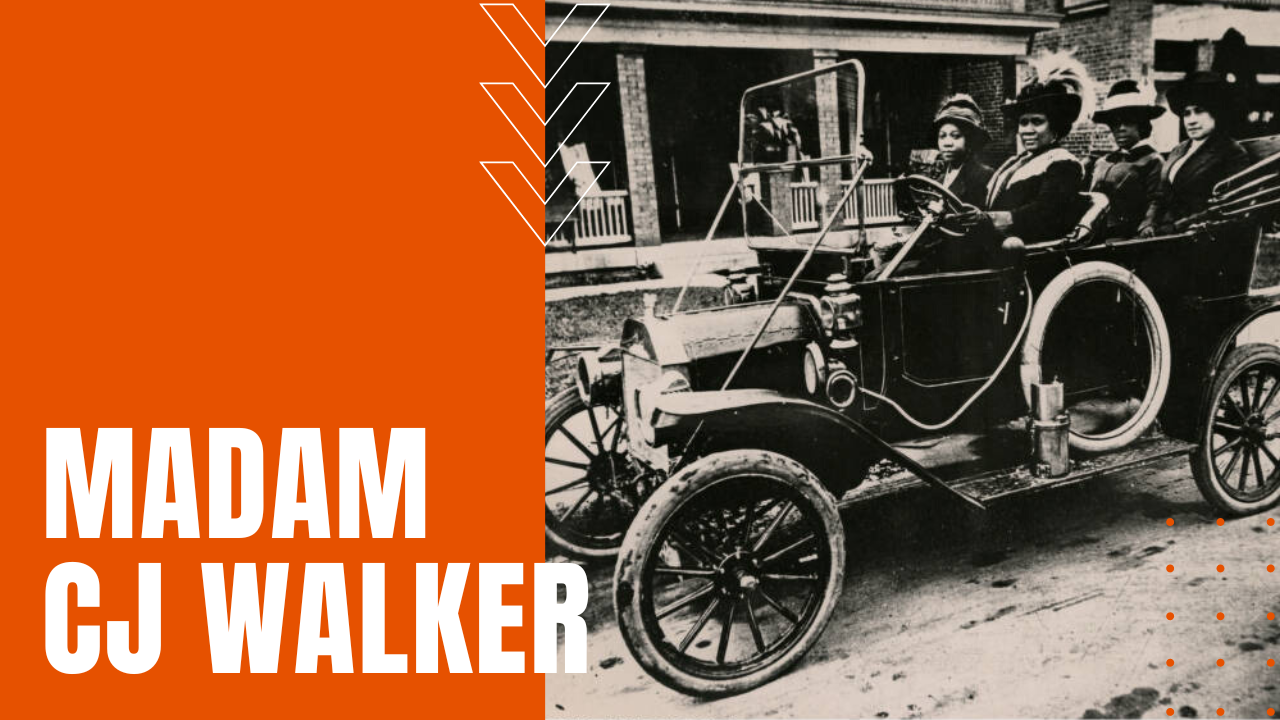Madam CJ Walker: First African American Millionaire

Early Life and Marriage
Born Sarah Breedlove on Christmas Eve, 1867, the future Madam C.J. Walker grew up on a sharecropping plantation in Louisiana, moving in with her older sister Louvenia when she was orphaned at age seven.
Working cotton fields with her sister, at age 14, Walker married Moses McWilliams—mainly to get away from her abusive brother-in-law—and when McWilliams passed away in 1887, Walker became a single mom for her two-year-old daughter.
In an attempt to escape crushing poverty, in 1889, Walker moved to St. Louis, where four of her older brothers ran a barber shop, joining the African Methodist Episcopal Church, where she grew inspired by the leading black men and women of the city.
Becoming Madam C.J. Walker
Struggling with alopecia or hair loss, ongoing financial difficulties and health issues resulting from her years of hard labor, in 1904, Walker’s life took a turn for the better when she joined African American entrepreneur Annie Turbo Malone’s burgeoning hair loss business.
Moving to Denver as a saleswoman for the company, Walker married ad-man Charles Joseph Walker, renaming herself Madam C.J. Walker before launching her own line of hair products and straighteners with a mere one dollar and twenty-five cent investment.
Advocating economic independence for black women, Walker’s business took off like wildfire, and after her divorce, Walker built a factory in Indianapolis, at the same time opening a training program for black female saleswomen known as the Walker System, eventually employing 40,000 women in the U.S., Central America and the Caribbean, making C.J. Walker the first black millionaire in American history.
Madam Walker’s Philanthropic Efforts
Founding the National Negro Cosmetics Manufacturers Association in 1917, by the time of her death two years later, Walker’s cosmetic business had grown in sales to a half million dollars annually, or $8.6 million in today’s currency. Walker would leave behind an estate worth one million dollars, including a mansion in Irvington New York named Villa Lewaro, along with properties in Harlem, Chicago, Pittsburgh and St. Louis.
In her later years, Walker became an avid philanthropist, sending six African American students to the Tuskegee Institute, while donating significant funds to the efforts of the NAACP. Shortly before her death to kidney failure at age 51, Walker redrafted her will to bequeath two-thirds of her company’s future net profits to charity and African American educational institutions, making Madam C.J. Walker, a stunning success during a time of racial bias in America.
